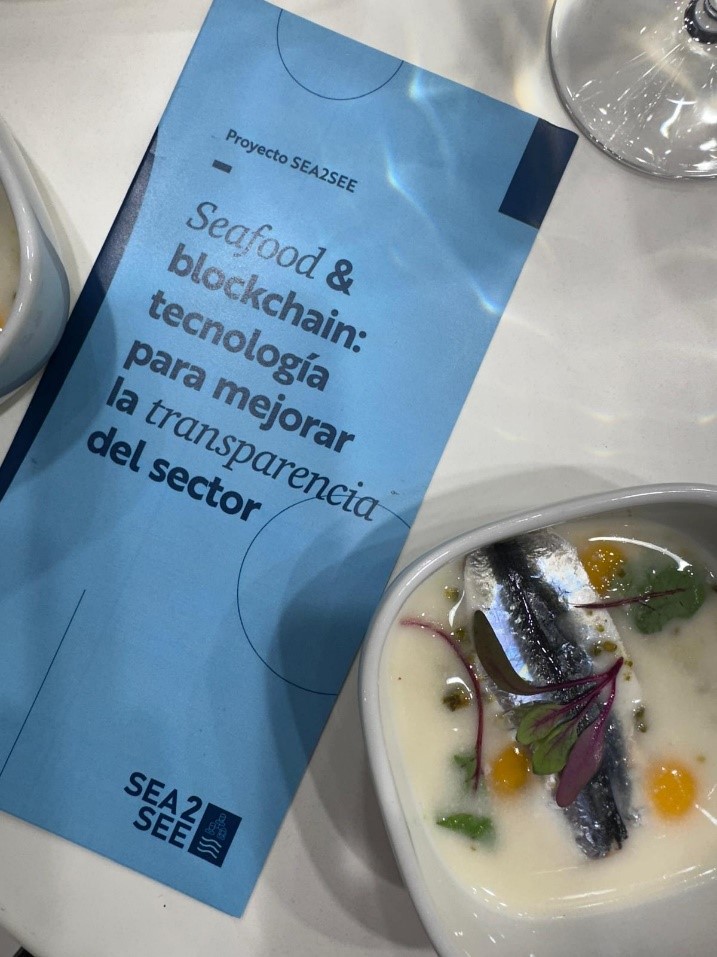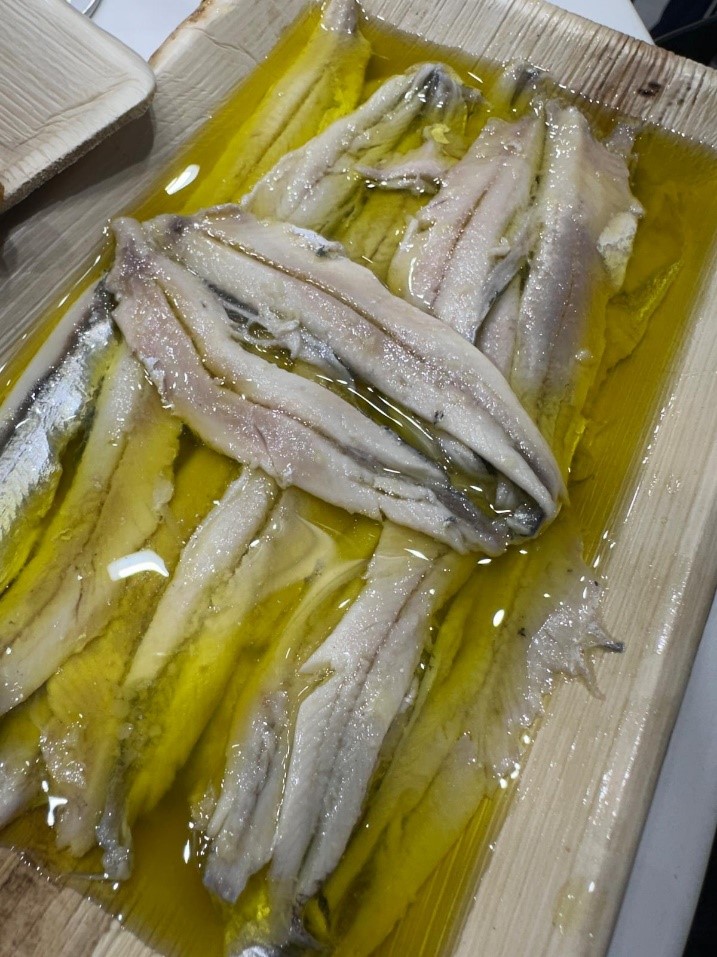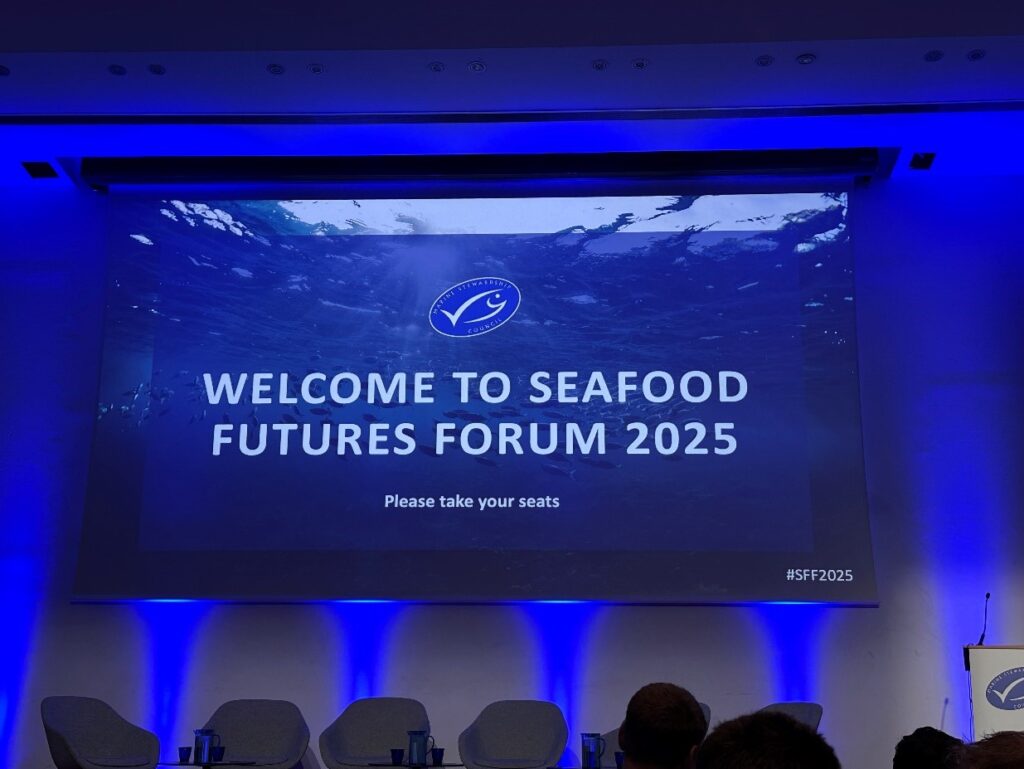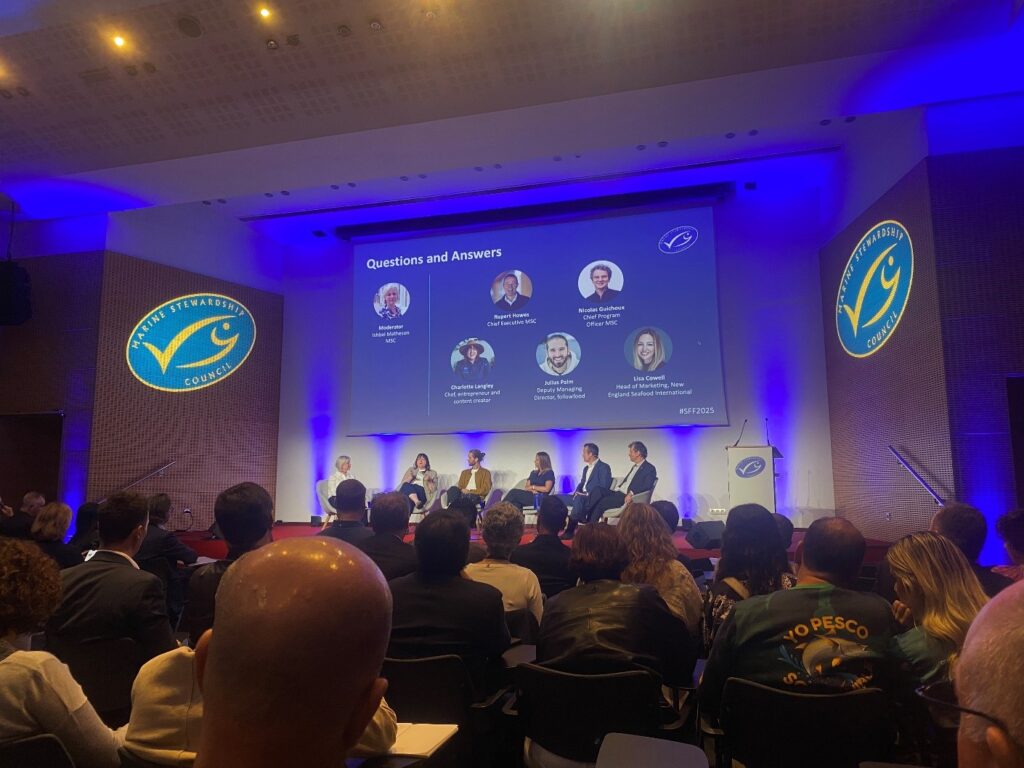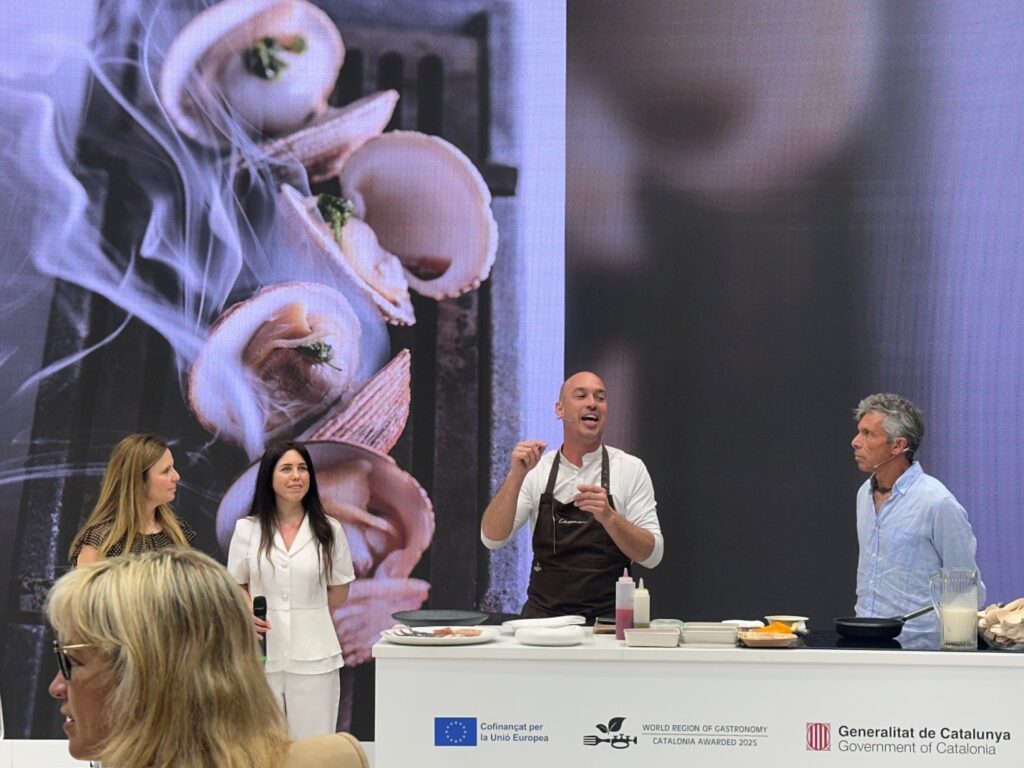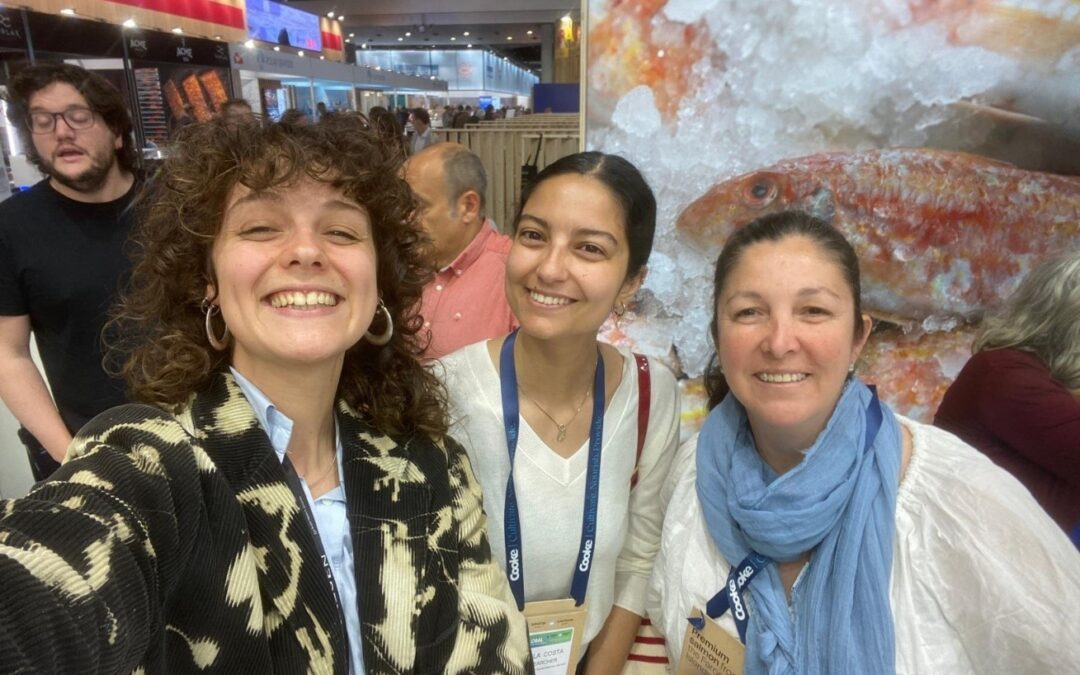Between May 6th and 8th, 2025, the city of Barcelona hosted the annual Seafood Global Exposition, bringing together thousands of professionals from across the global seafood value chain. From fishers and aquaculture producers to retailers and policymakers, the event was a convergence of expertise, allowing for a stage to present very powerful debates discussing the future of the seafood industry. With hundreds of stands displaying new seafood products and a full program of expert-led conferences, this year’s edition highlighted both the urgent challenges and the transformative potential of the sector.
Here are the key takeaways:
Traceability is now non-negotiable.
Traceability was front and center throughout the debates. With new legal frameworks such as the U.S. FSMA 204 and the upcoming EU Regulation 2023/2842, traceability is moving from best practice to legal obligation. The latter regulation states that by 2026, traceability will expand to real-time tracing.
Throughout the conferences, speakers reiterated the need for shared standards, cross-sector collaboration, and data harmonization to tackle global challenges. GDST standards were praised for enabling interoperability, and multiple NGOs emphasized the importance of connecting the whole value chain with the same language to ensure real change.
Data verification, not just traceability, emerged as a critical piece of the dialogue. Without reliable, standardized verification systems, data alone won’t build the trust that consumers and buyers need. At this point, blockchain technology appeared as a very solid solution to tackle verification processes, as data cannot be modified and is protected throughout the whole value chain.
The shift is clear: companies no longer ask if traceability is needed, but how best to implement it.
Consumers want sustainability, but not at any cost
Sessions exploring consumer behavior revealed a growing concern for sustainability among younger generations. However, price and convenience remain the main drivers of purchasing decisions. Expert retailers agreed that sustainability must be communicated better, without overwhelming or confusing customers with an overload of different labels with vague environmental claims.
Carbon reduction in wild fisheries: progress but still few answers
One conference session focused on how major wild fishing companies are addressing sustainability challenges. The three speakers emphasized that society expects them to acknowledge their environmental impacts, making it imperative to invest in accurate reporting and concrete strategies for impact reduction.
Accurate reporting, investing in a more carbon-efficient fleet, or buying land to compensate for their carbon footprint were some of the actions presented by the managers as part of their reduction strategies to become carbon neutral by 2040.
Aquaculture’s role in ecosystem restoration
Aquaculture was not only discussed as a solution to feed a growing population, but also as a potential ally in ecosystem restoration. The Sustainable Fisheries Partnership (SFP) and Aquaculture Stewardship Council (ASC) introduced landscape-scale models and pilot projects, particularly in India, that link shrimp farming with mangrove regeneration and carbon offsetting. These models rely on collective action and economic incentives to encourage producers to integrate sustainability into their practices.
Final thoughts
The conferences at Seafood Global 2025 left us with a clear message: sustainability is on the seafood industry’s agenda, and action plans are being developed to tackle the challenges that it brings. However, society needs clearer messages about what they buy. This suggests the need for improved interconnectivity along the seafood value chain and more efforts to meet regulatory demands.
Traceability and customer behavior were at the center of the discussion, reinforcing the importance of all the actions organized within the Sea2See project to keep supporting a more transparent development of the seafood industry, for responsible consumption.
Contributor: SUBMON
